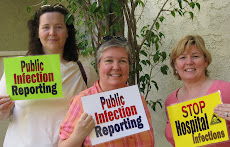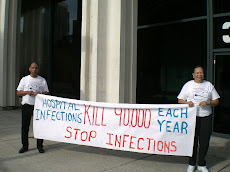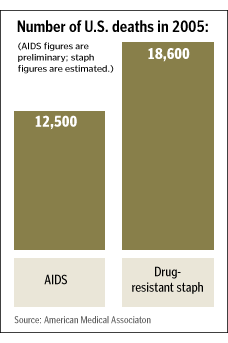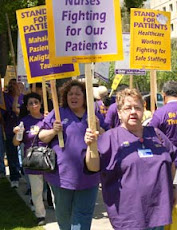Perks policy for doctors challenged
Physician organization wants limits rolled back
By Liz Kowalczyk,
Boston Globe July 23, 2009
A growing number of hospitals, universities, and states are barring drug companies from buying physicians dinner, hiring them as speakers, and giving them even token gifts.
Now, a new organization of doctors - several from Boston - wants to roll back policies curbing interactions between doctors and drug company representatives, saying restrictive rules ultimately will hurt the patients they’re designed to protect.
The group, called the Association of Clinical Researchers and Educators, plans to hold its first conference today at Brigham and Women’s Hospital to promote “productive collaboration’’ between industry and physicians, which they say leads to better medicines and treatments. Dr. Jeffrey Flier, dean of Harvard Medical School, is one of 25 speakers and will give the welcoming remarks to about 200 attendees.
Flier, who is unaffiliated with the organization, will not endorse its views, said David Cameron, spokesman for the medical school, which is revising its conflict-of-interest policy. “He will welcome vigorous debate and analysis on the issue of academic collaborations with industry and encourage individuals with varied perspectives to participate in the discussion,’’ Cameron said in a written statement.
Dr. Thomas Stossel, an oncologist at the Brigham; Dr. Jeffrey Garber, chief of endocrinology at Harvard Vanguard Medical Associates; and Dr. Paul Richardson, an oncologist at Dana-Farber Cancer Institute, are among the founders of the group. Stossel said they want “to convey that there is a silent majority out there. And to restore some balance to the debate,’’ he said.
The group’s website says its long-term goals include reversing restrictive new conflict-of-interest policies and establishing chapters at universities and within medical specialty societies.
Massachusetts public health officials plan in two years to review the state’s new conflict-of-interest regulations, which went into effect July 1 and include a ban on gifts to doctors from drug and medical device companies, and Stossel said his group “wants to create an outcry against’’ the law. The law also requires drug and device companies to disclose publicly most payments made to doctors for consulting.
Partners HealthCare, which includes the Brigham and Massachusetts General Hospital, passed its own restrictions in April, which go further than the state law, banning all industry-paid gifts and meals and also forbidding doctors from traveling the country as paid members of company “speakers bureaus.’’
The association’s goals, which run contrary to the widespread movement in medicine to create more distance between doctors and pharmaceutical companies, have been widely discussed - and often derided - on healthcare blogs in the past several weeks.
Patient advocacy groups and lawmakers leading the charge for more restrictive policies say Stossel and his colleagues are misguided. Advocates of the restrictions believe drug companies, by giving doctors gifts and paying them to speak and consult, create bias in favor of their products, causing doctors to write more prescriptions for expensive new drugs even if patients don’t really need the medication or if an older, less expensive drug would work just as well.
Dr. Peter Slavin, president of Mass. General, has said that company-funded meals, gifts, and other practices don’t promote a positive image of doctors and increase healthcare costs.
“The rules benefit consumers by removing the conflicts that we know cloud judgment, and let doctors make decisions free from market pressures,’’ said Brian Rosman, research director for Health Care For All, a Boston-based patient advocacy group.
But Stossel and his colleagues said the new rules stifle invention. They believe the impact of small gifts and meals on doctors is negligible compared with the benefit of collaboration.
“I’ve been in medicine 40 years, and medicine is incomparably better than when I started out,’’ Stossel said. “I don’t think anyone can challenge the fact that it’s because of the tools we’ve gotten from industry.’’
Stossel is a former member of Cambridge-based Biogen Idec’s scientific advisory board. He said he now does occasional consulting to companies on conflict-of-interest policies. The conference is funded by attendees’ fees, though participants who work for drug and device companies are charged more, he said.
Subscribe to:
Post Comments (Atom)









1 comment:
I recently checked out the Tractor specs section on AllMachines and was impressed by the wealth of information available about tractors. The part detailing Kubota Compact tractor price is especially useful, as it clearly outlines the pricing for various Kubota compact models. Additionally, they include LS tractor specs, which offer in-depth information about LS's tractor offerings.
Post a Comment